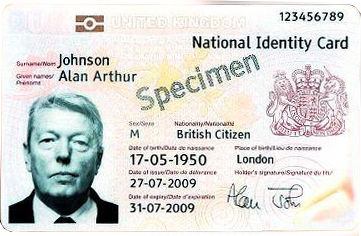Insurance is a contract that remains in force until it expires or is cancelled As you may, or may not, know I specialise in motoring law and most of my work involves defending people accused of drink driving . With the drink driving often come other road traffic offences such as driving while disqualified and driving without insurance. It’s driving without insurance I want to talk about today because I think far too many police officers, solicitors, barristers and judges miss a key legal point when looking at these cases. I’ve received prosecution papers today for somebody accused of driving while disqualified and driving without insurance. The no insurance element is claim that the suspect did not tell the insurer about the disqualification. In his statement, the police officers says, “ [I] contacted [the insurer] who called me back informing me they would not consider the insurance policy valid as there were no convictions disclosed.” Looks like an open an



On the whole I agree. As counsel presenting the defence case months later in the CC I prefer a good prepared statement and No Comment in interview. One of the real problems these days is with staged disclosure where the police deliberately hold back info they should disclose at the outset and drip feed the info before a succession of interviews. This is clearly designed to frustrate the right to silence. That right still exists in this country even if watered down and it illustrates the simple proposition that if the police don't have sufficient evidence to charge why should a suspect be expected to fill in the gaps in the evidence?
ReplyDeleteThis comment has been removed by the author.
DeleteA prepared statement containing a provable lie is just the best. Had one recently where the legal rep just sighed and looked to the ceiling when the lie became clear. Signed, sealed and unequivocally delivered.
ReplyDeleteOn the whole though I think your article is very interesting and helps explain some of the things I see regularly.
I've seen first hand the ridiculousness of people trying to lie their way through an interview where they're unrepresented only to fold near the end when things stack up against them and admit the truth. It never looks good and is frankly a waste of my time too. I've also seen rubbish prepared statements which say very little and almost by the glaring omission of a key aspect of disclosure imply that's exactly where my investigation should be looking harder.
We've occasionally had out-of-county city firms turning up to represent clients in our county town custody block try the 'no comment throughout then prepared statement at charge' approach. It just comes across a bit silly but maybe they're used to more cut and thrust shenanigans on home turf?
One other thing I've seen recently is one legal rep writing the prepared statement on their legal pad and refusing to provide a copy. They read it out at the usual point in interview and basically said if we wanted it get the tape transcribed. Seemed unnecessarily obstructive.
All good fun though,
As a rule of thumb, how well does "give a statement/answer questions if you're innocent, keep silent if you're guilty" work?
ReplyDeleteIf you are guilty then being honest isn't going to help and lying (even by omission) just creates opportunities to prove you were lying and discredit you. If you are innocent then you might be able to avoid a charge or at least avoid any later adverse inferences.
Experience tells me that not everyone who thinks they are innocent actually is, e.g. had a client who saw his friend being attacked in a club. He had a glass in his hand and threw it. In interview, he said he was acting in defence of his friend. Evidence was clear though that his act went beyond reasonable force and he got his first ever conviction, a serious one for GBH!
DeleteAlso, the question isn't whether you are innocent or guilty, the question is what can the prosecution prove? There's been plenty of innocent people proven guilty, many of them will have answered questions in police interview.
Is that the legal equivalent of a shout-out? Nice article.
ReplyDeleteJust to be clear, No Comment is our cheeky (almost funny) trading name and not our advice in every instance! Its a company name that people either love or hate. We just thought it was memorable.
I do think that every case needs to be judged on its merits so there are no blanket rules. Some cases will benefit from a no comment interview where others would suffer from the same advice. Sometimes the evidence is the determining factor whilst sometimes it is the nature of the client himself.
If you would like me to link to your blog do please drop me an email sometime.
Mat Fresco
No Comment Ltd
Hi Mat, I loved the tag line. Thought it was hilarious. I explained it to the PC who thought it was advice & they saw the joke too. Though come to think of it, probably shows they were trying to read the rep's notes from the other side of the table! Now that is cheeky.
Delete